Facilities
Mars Center for Science and Technology
The Chemistry Department is housed on the third floor of the state of the art Mars Center for Science and Technology. The Mars Center also houses the departments of Biology and Neuroscience. The Mars Center is a LEED Gold certified by the US Green Building Council.
In addition to teaching and research laboratories the penthouse level features Greenhouse facilities as well as the Astronomy Observation Deck. The facility has a green roof, a cafe, dedicated student work/study spaces, an outdoor classroom as well as an enclosed courtyard illustrating geological features and native plant species.
Laboratories
The Chemistry Department has three main teaching laboratories in the Mars Center for Science and Technology.
The Introductory Laboratory houses Chemical Principles (Chem 153) during the fall semester and Aqueous Equilibria (Chem 232) during the spring semester. This laboratory was designed for maximum flexibility and can accommodate up to twenty students working in pairs or groups of four.

The Organic Laboratory houses Organic I (Chem 253) during the spring semester and Organic II (Chem 254) during the fall semester. This laboratory can accommodate up to sixteen students working individually with dedicated fume hood and writeup space for each student. Equipment and instrumentation such as rotary evaporators, melting point apparatus and an FT-IR spectrometer are also housed in this space.

The Chemistry Superlab is a series of four interconnected rooms, the Evans-Jennings-Marshall Seminar Room, an HVAC Intensive Laboratory (below), a less HVAC Intensive Laboratory and an Instrument Room (second below). The Superlab houses all of our upper level courses which in a typical year may include Inorganic (Chem 261), Instrumental Analysis (Chem 332), Thermodynamics (Chem 355), Quantum Mechanics (Chem 356), Advanced Inorganic (Chem 361) and Advanced Organic (Chem 362) and special topics courses.


Instrumentation
The Chemistry Department prides itself on the wide range of modern instrumentation available to students taking our courses and conducting research in our laboratories.
The major instruments available for teaching and research
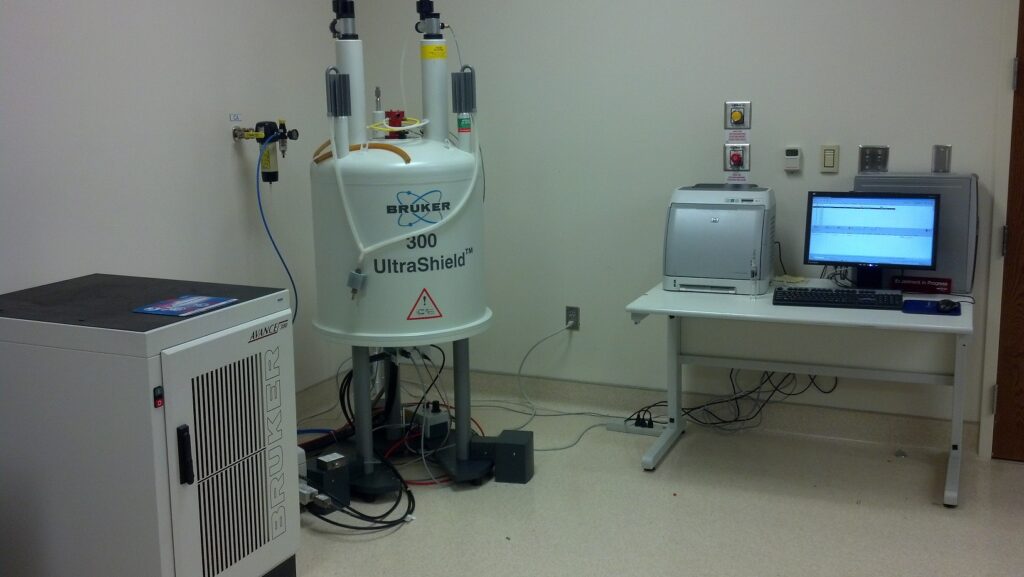
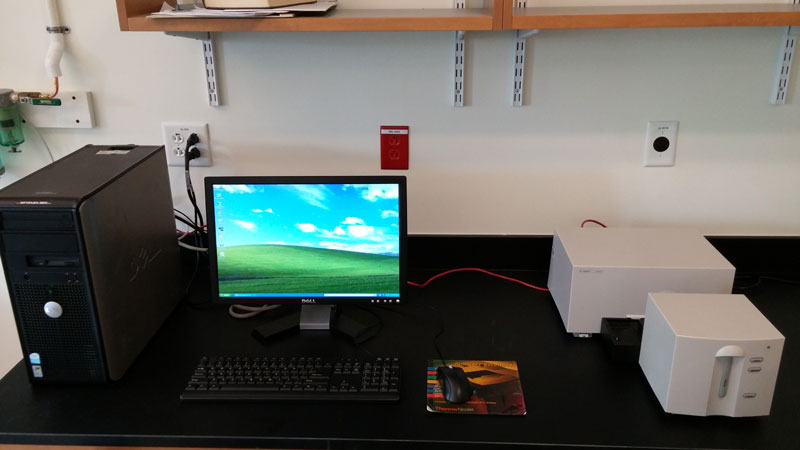
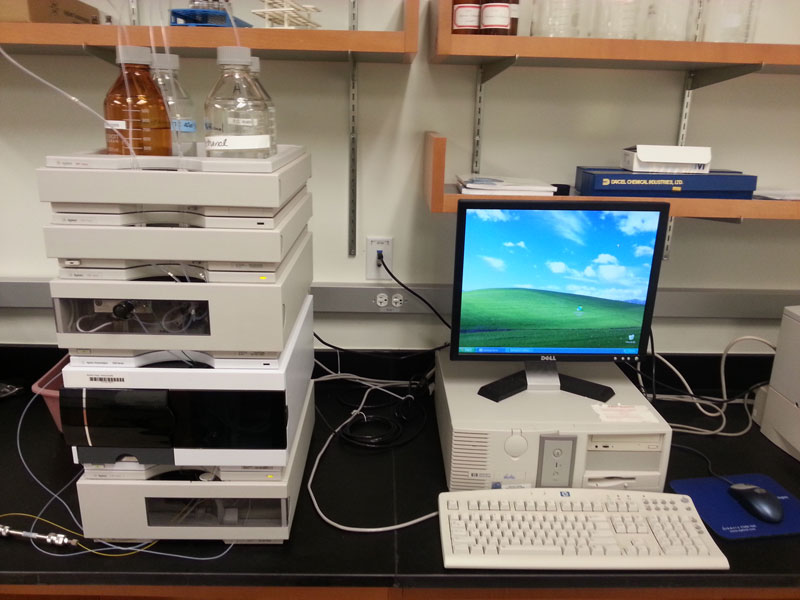
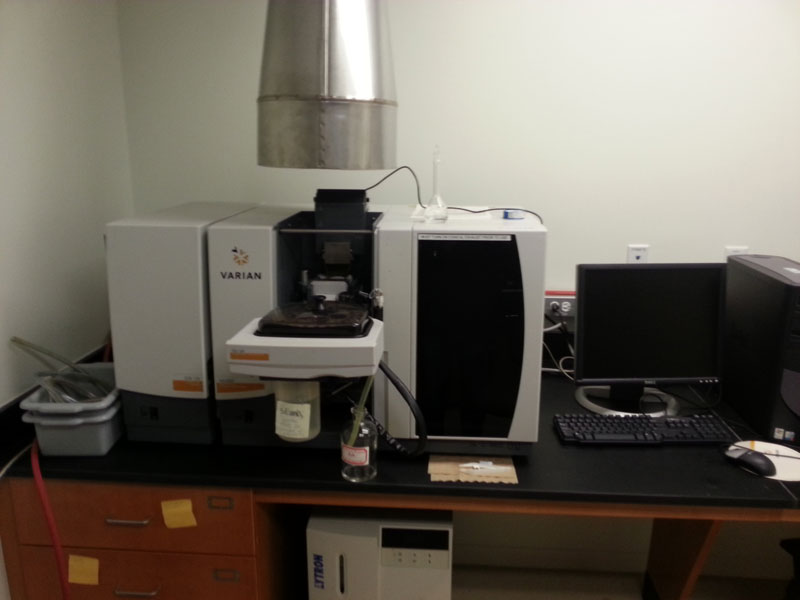
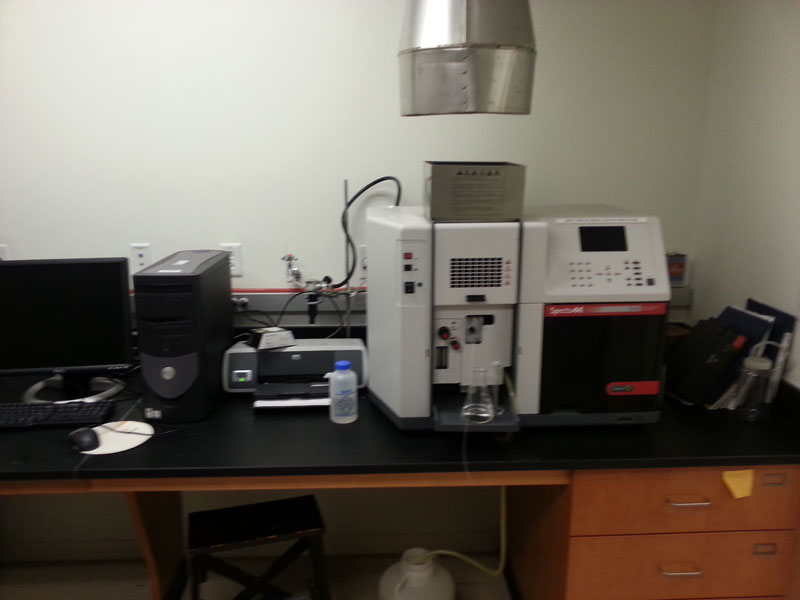
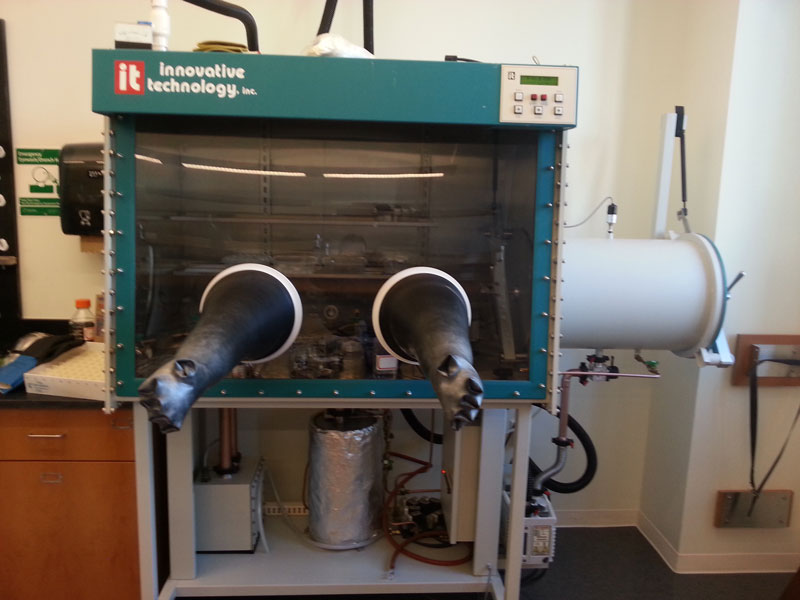
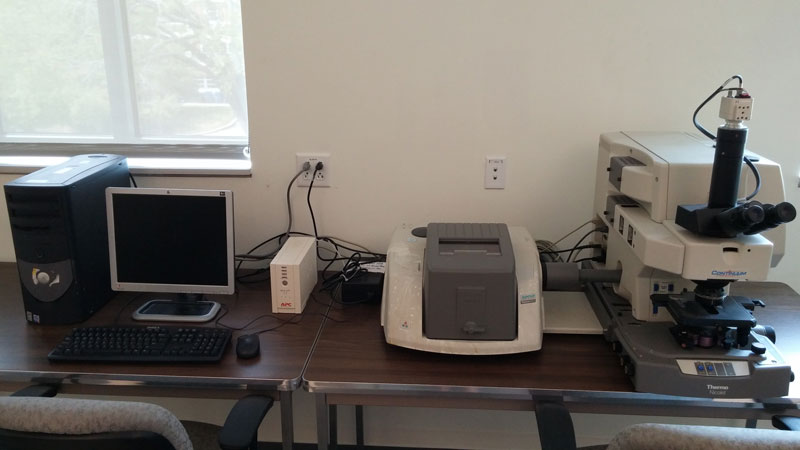
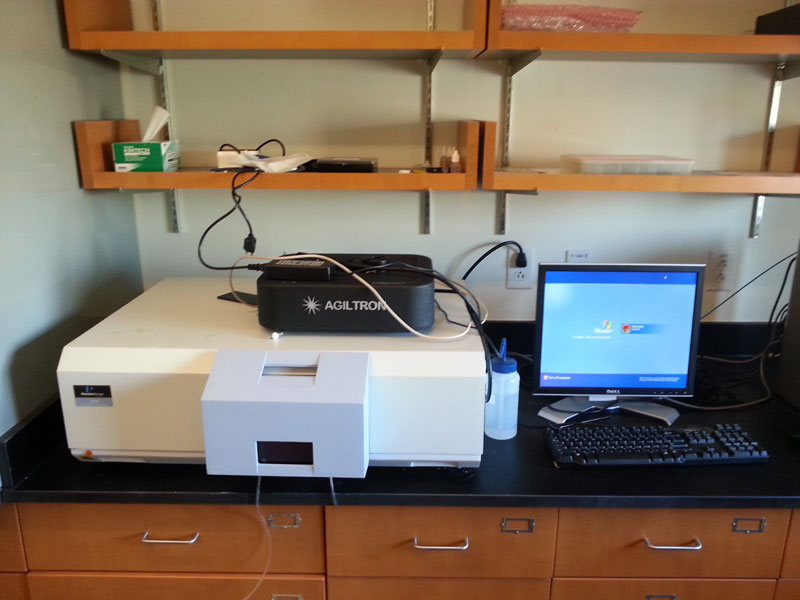
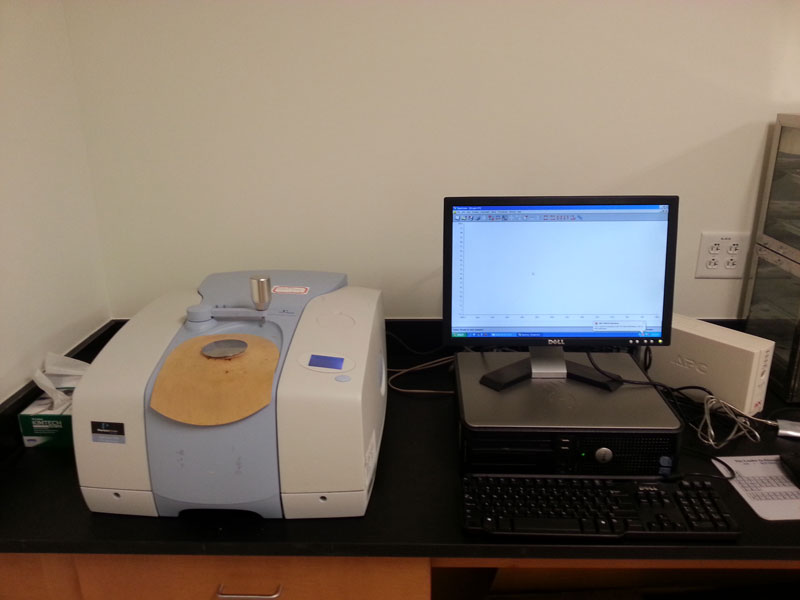

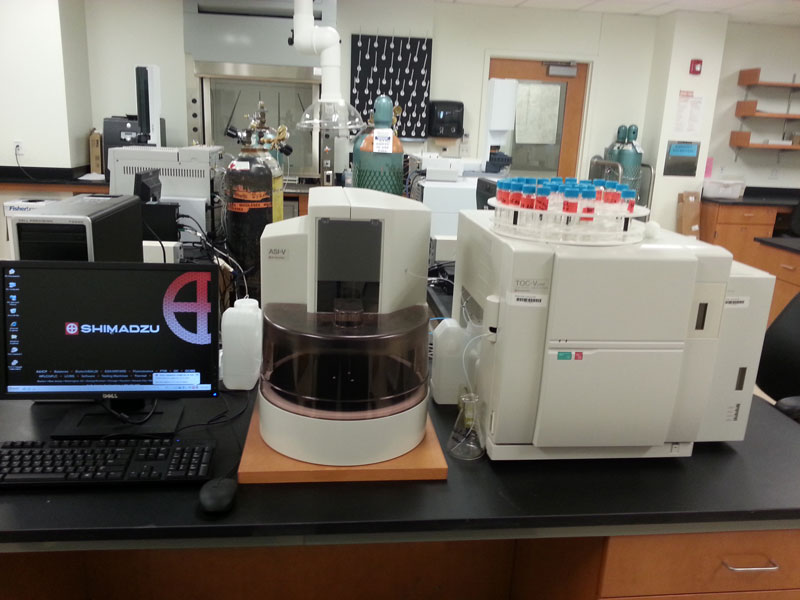
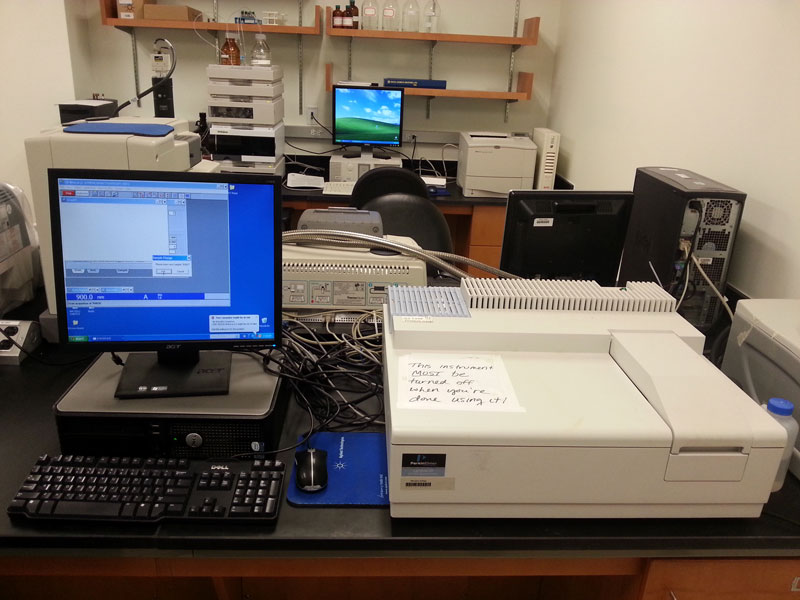
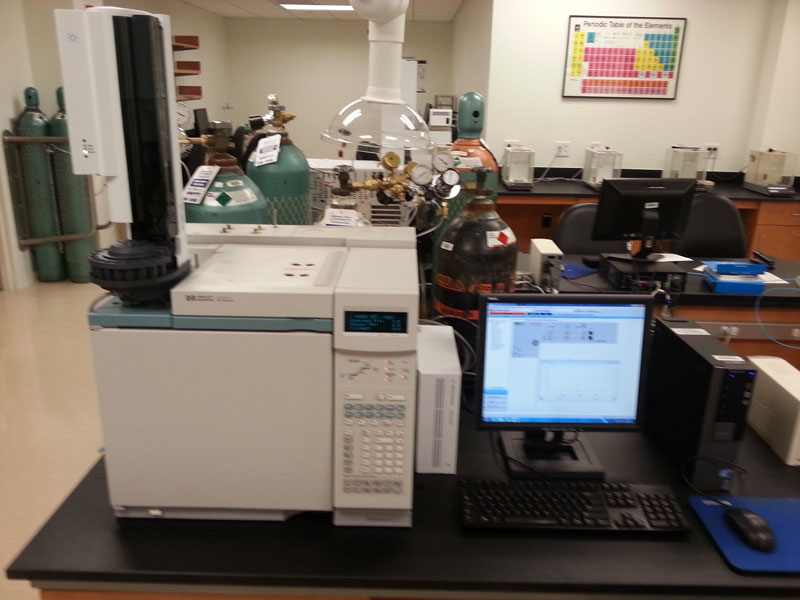
Laboratory Safety
General Laboratory Practices
- Never work in the laboratory alone.
- Learn the location and operation of emergency equipment, blankets, and first aid supplies. Know what to do in case of an emergency.
- Be properly prepared to do the experiment. Read the written procedures in advance and understand what you are going to do.
- Observe all instructions given by the instructor, and note all precautions where indicated. Never attempt unauthorized or unassigned experiments. A violation of this rule often leads to unexpected injury
- Act in a responsible manner at all times. No horseplay or fooling should occur in the lab.
- Smoking, eating or drinking in the lab are forbidden.
- At the end of the lab period clean your glassware and lab bench, and put away all equipment. Before leaving the laboratory, wash your hands thoroughly.
Safety Goggles must be word in the Laboratory at all times. Immediately report all accidents or injuries to your laboratory instructor.